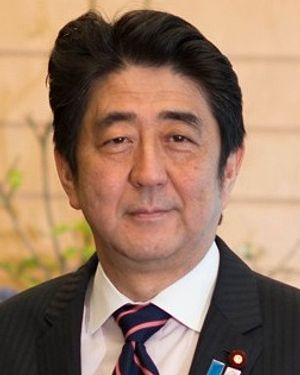A few curated links ahead of the weekend:
Over at the National Bureau of Asian Research, Kenneth Pyle reflects on “the sea change” in Japanese foreign policy that we are currently witnessing under Shinzo Abe’s government. This week’s resolution on collective self-defense effectively moves Japan decisively away from the legacy of the Yoshida Doctrine — Japan’s strategy of letting the United States provide for its security during the Cold War while it focused instead on economic growth. Pyle rightly highlights the major uncertainty facing Northeast Asia as Japan under Abe continues to push towards normalization. He notes that while the government is pushing gradually towards this goal, “the long-term goals of Abe remain unclear as he has yet to articulate a vision of what a more independent Japan would seek.” I’d wager that Japan will seek to preserve the regional status quo in Asia against an increasingly assertive neighbor to the west.
Over at The National Interest, Nickolas Roth and Lt. Gen. Robert Gard make a compelling case for the United States to continue nuclear security cooperation with Russia despite current geostrategic difficulties. Nuclear security cooperation between the United States and Russia is currently on the chopping block in Congress as part of U.S. punitive measures towards Russia for its actions in Ukraine this year, including annexing the Crimean peninsula. Summarized: “The Russian invasion of Ukraine deserves a serious, coordinated response from the international community, but the United States should not cut off its nose to spite its face.”
Iran is one of the major actors in the current crisis brewing in Iraq, where the Islamic State of Iraq and the Levant (ISIL) recently rebranded itself the Islamic State (IS). What is Iran doing about Iraq’s sectarian disintegration? Well, Reza Marashi has a detailed catalogue of the Iranian government’s response over at Iranwire. Zachary Keck and I discussed the crisis in Iraq on a recent episode of The Diplomat‘s Asia Geopolitics podcast.
Bloomberg takes a look at the revival of China’s great seafarer Zheng He in an attempt by the state to recast China’s history as one of a great naval power. Zheng died 600 years ago but his spirit carries on and is currently being used as part of China’s justification for great power status. In particular, in Zheng’s day, the South China Sea was China’s playground in its entirety. As China navigates its maritime disputes in that sea in 2014, Zheng seems to be as good a historical precedent for territorial assertion as any.
And as a bonus for those of you following the FIFA World Cup, it turns out that U.S. Secretary of Defense Chuck Hagel did call U.S. goalkeeper Tim Howard to congratulate him on his stellar performance in the United States’ final game in the tournament. Howard saved more goals in a single game than any goalkeeper in World Cup history, prompting one Wikipedian to declare him the U.S. Secretary of Defense. According to Pentagon Rear Adm. John Kirby, Hagel “told Howard that with some training, he could someday become the real secretary of defense.”
































